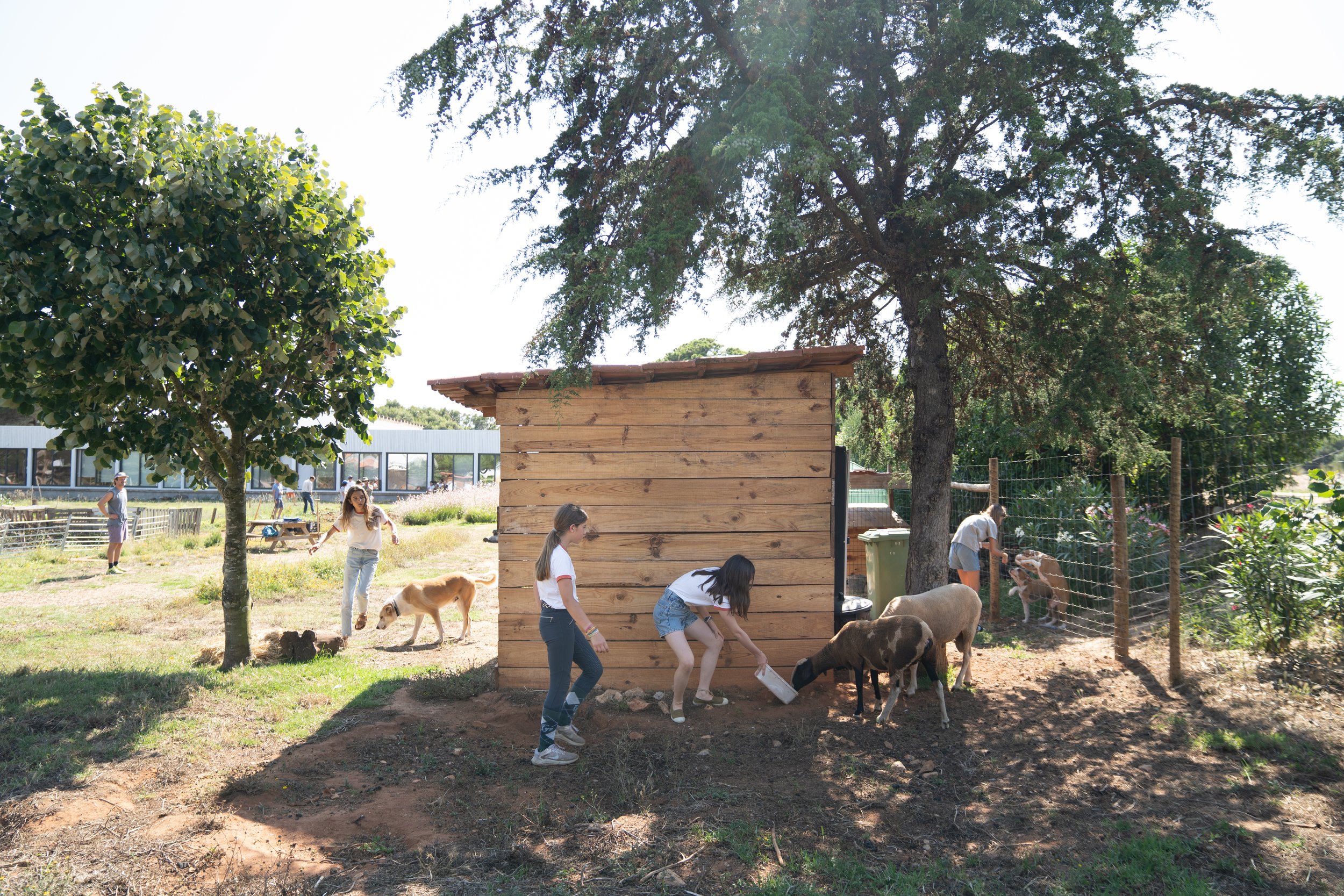
Farm
Working with the land is a key component of Montessori education at every level. The farm is an expression of 'Integral Ecology', as described by Pope Francis in Laudato si', connecting care for the natural environment with care for human life, social justice, economics, and culture. The farm is a constant reminder that we are all part of one interconnected system and that true environmental stewardship requires a corresponding commitment to protecting the human dignity of all people.
In the Primary years, the garden serves as a place to learn the first elements of biology in the most natural way – children plant a sunflower seed, tend their seedlings as they sprout, and then watch them grow to full sunflowers.
As they move into Elementary, these lessons become more complex, and the students implement their classroom work on the life cycle of plants to tend full gardens, and then practice their practical life skills and grace and courtesy lessons by turning the bounty of their harvest into meals for their classmates and teachers.
In the Adolescent Programme the farm is fully integrated into daily life, and is the vehicle for lessons on everything from animal husbandry and agriculture to maths, science and economics. The students farm, harvest and sell their crops, and tend to livestock. They learn firsthand the meaning of the farm-to-table process. At this age, the farm provides the adolescent with the means to develop his or her independence, confidence and meaningful participation in the community, through production and exchange.
Kairos offers access to the land on our farm. We offer rich and extensive opportunities to study the sciences through direct work and experimentation, humanities through “place-based pedagogy”, and mathematics through “hands-on” and standard text experiences. Studies are rigorous yet real.







